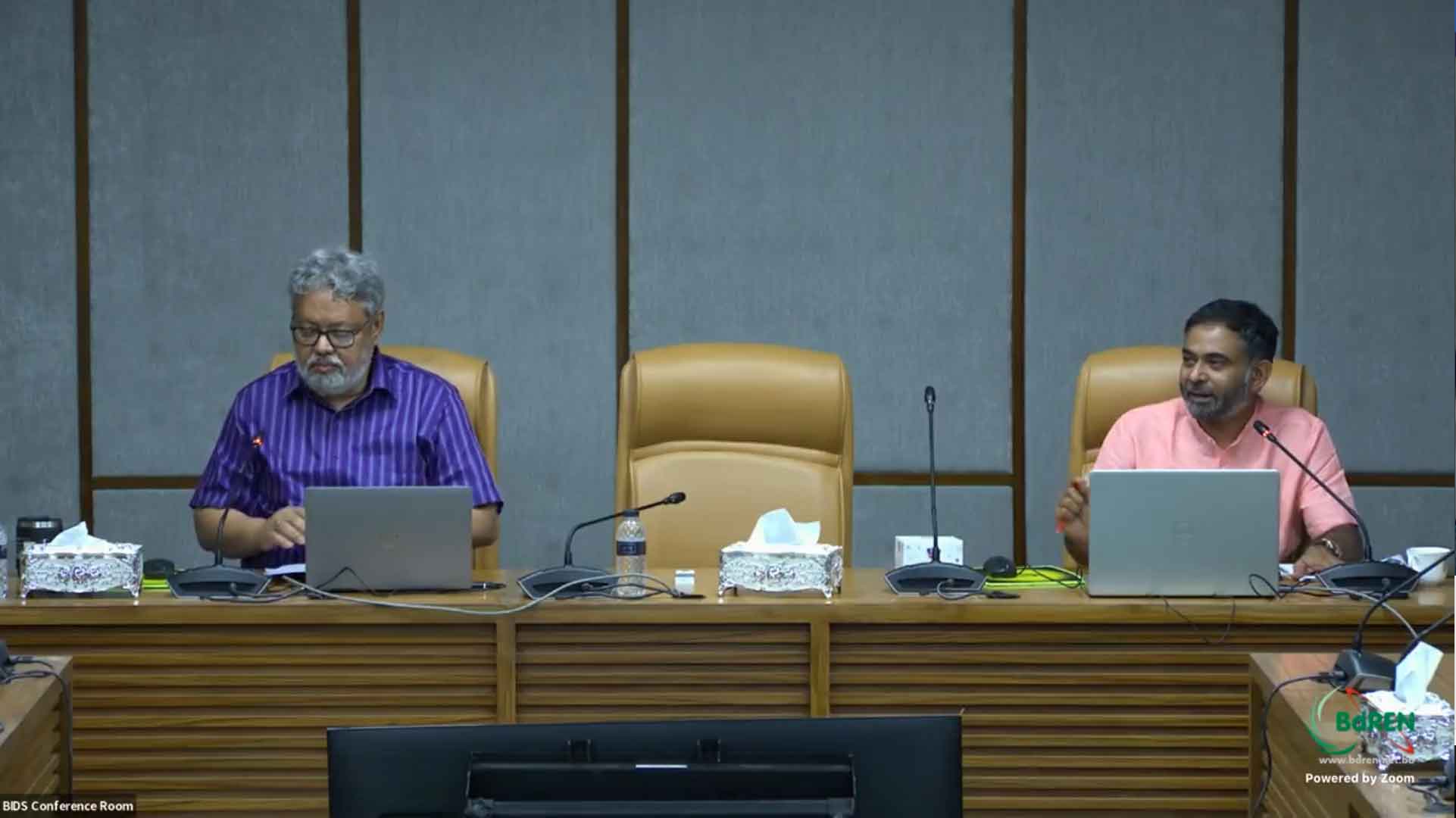What do we learn about household food demand patterns and elasticities from micro-data in Bangladesh?
Bangladesh Institute of Development Studies (BIDS) organized the BIDS Fortnightly Seminar 2022 titled “What do we learn about household food demand patterns and elasticities from micro-data in Bangladesh?” on 09 November 2022 in the BIDS Conference Room. Dr. Wasel bin Shadat, Post-Doctoral Fellow at BIDS, presented his research findings in this seminar.
The study revealed that while rice consumption declined during the first shutdown of the Covid-19 period, its price soared by nearly 20%. However, using statistics from the Department of Agricultural Marketing (DAM), Dr. Shadat found that the price increase of rice forced people to lower consumption of pulses by 2.34%, fish by 5.08%, meat by 5.20%, vegetables by 2.04%, and fruits by 15.52%. He used data from the Household Income and Expenditure Survey 2016 to examine household food demand trends and elasticity. In 12,056 households, he examined the consumption patterns of 132 food items divided into nine bundles, including rice, other food grains, pulses, fish, eggs, meat, vegetables, and fruits. According to Dr. Wasel's findings, those who are considered to be "extremely poor" spend the most money on rice. He also found that socioeconomic class and rice consumption are correlated. However, urban households have a greater appetite for meat whereas poorer households consume less fish and meat.
This presentation was attended by BIDS researchers, academicians, policy-makers, development practitioners, and journalists. Dr. Binayak Sen, the Director General of BIDS chaired the event.
